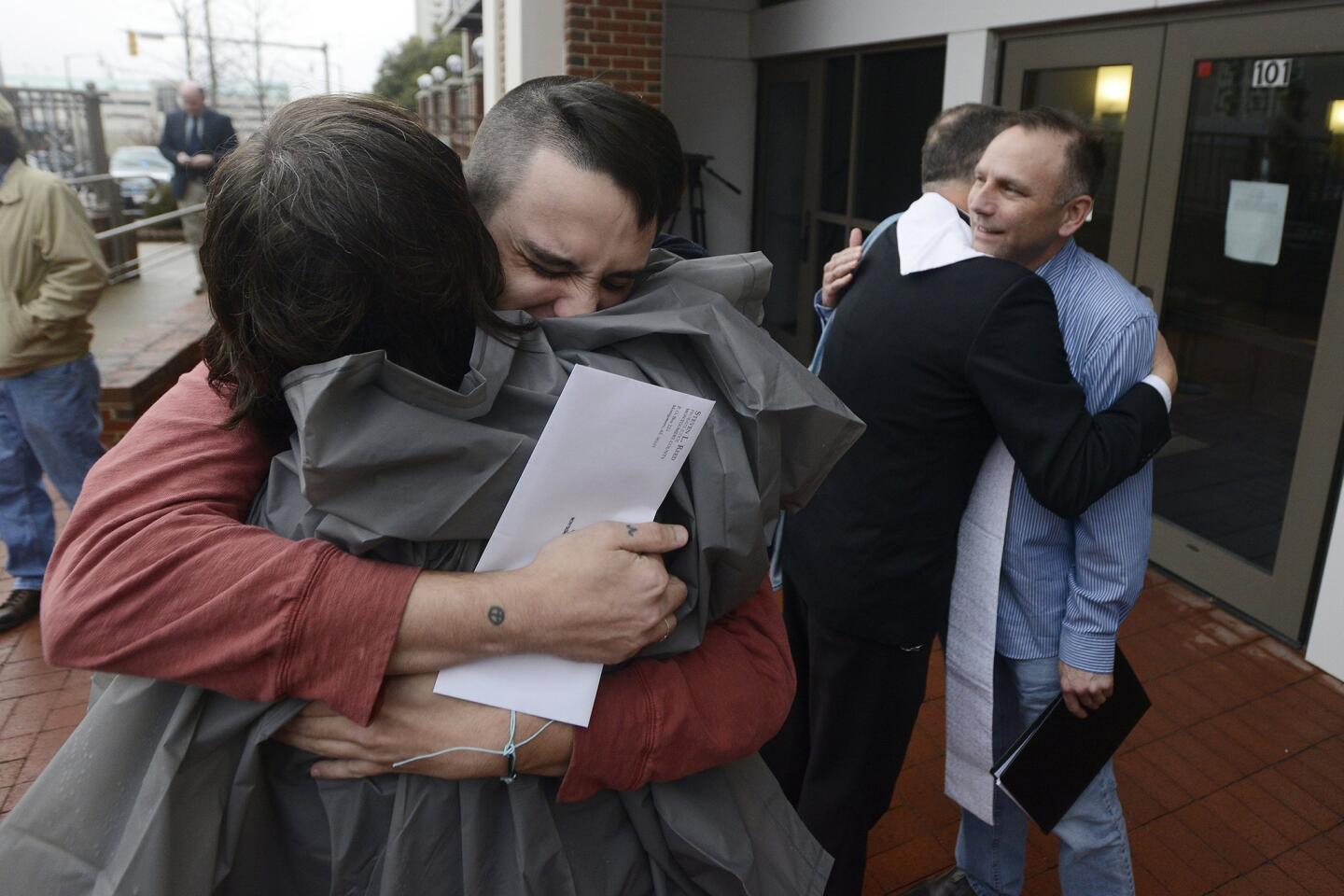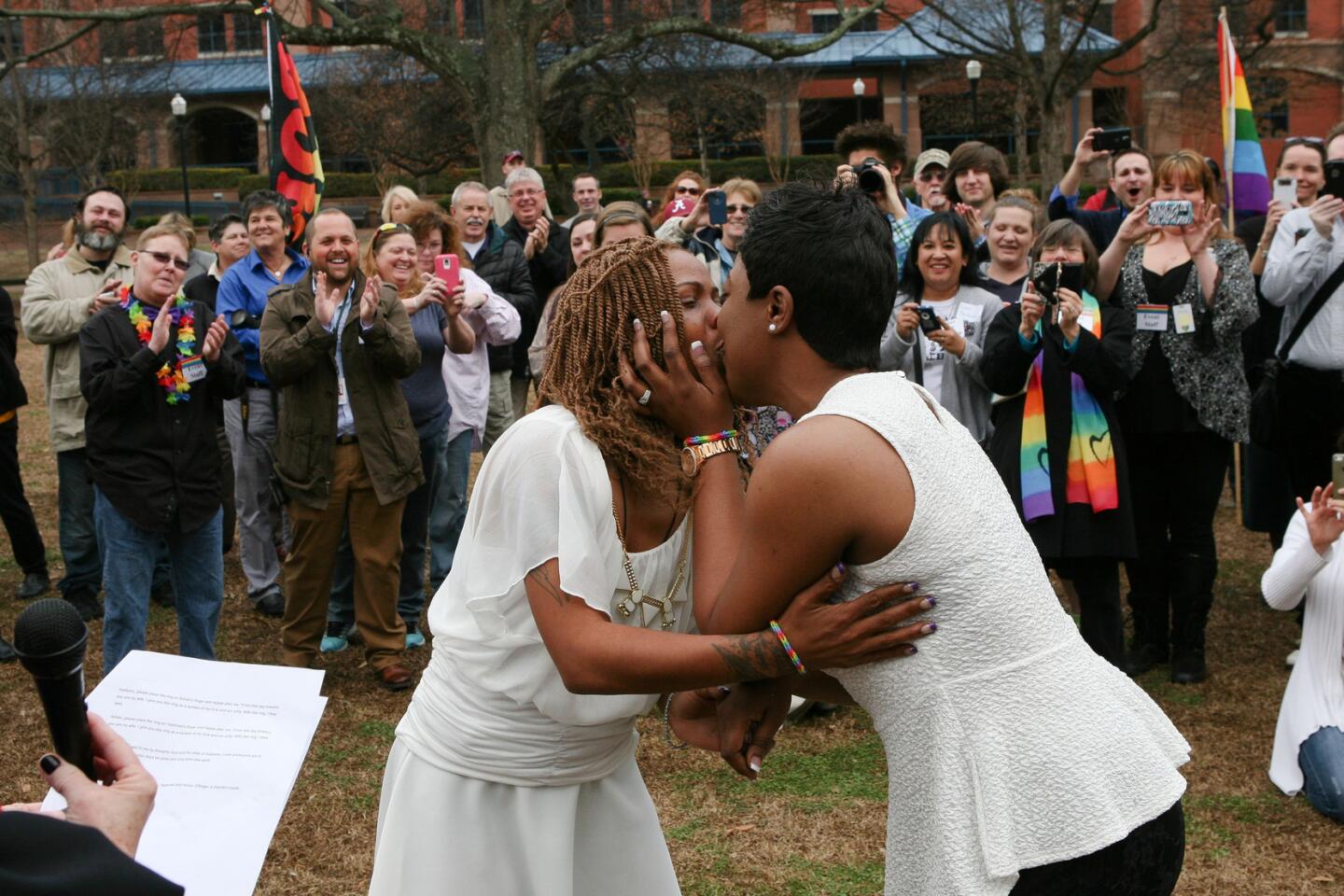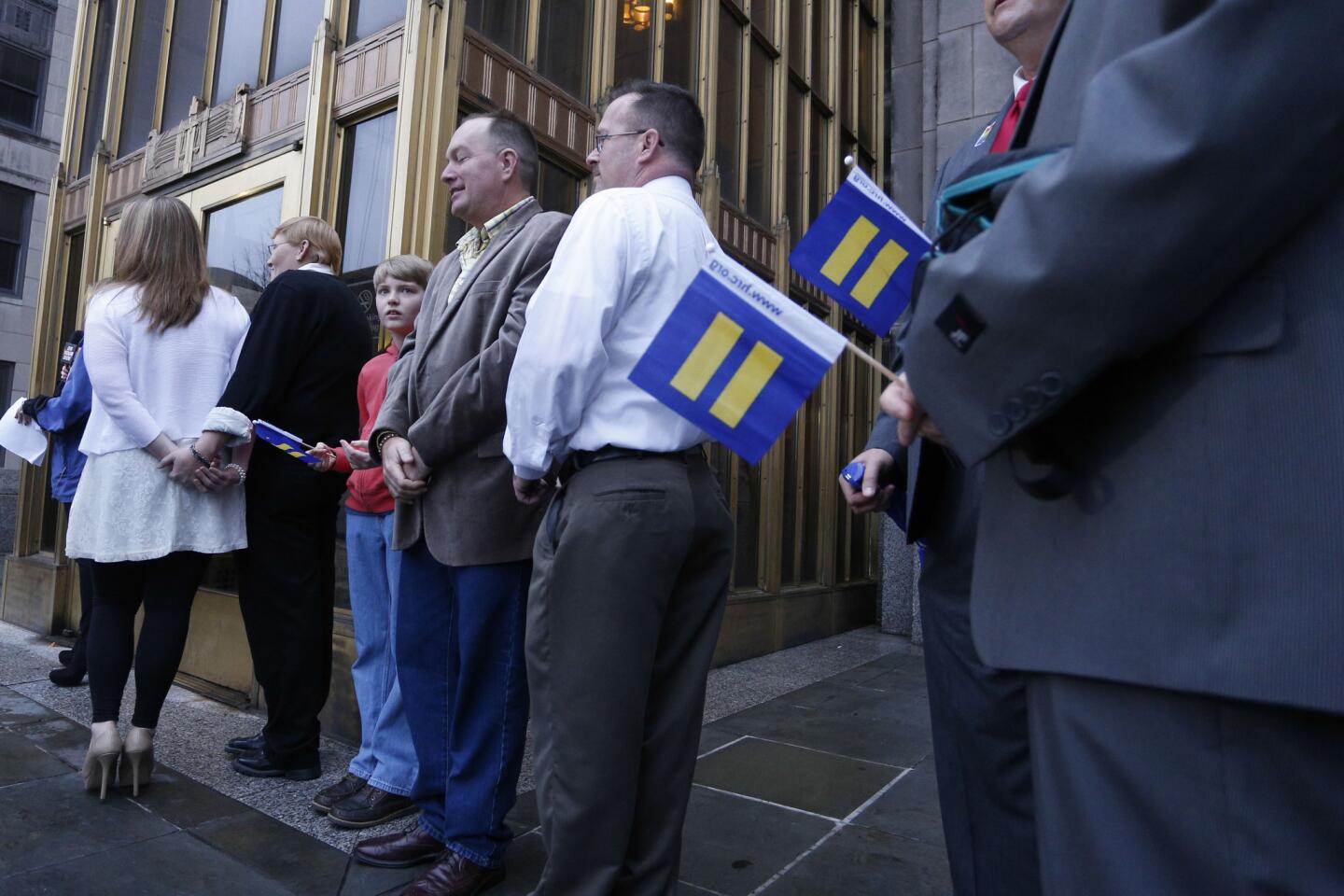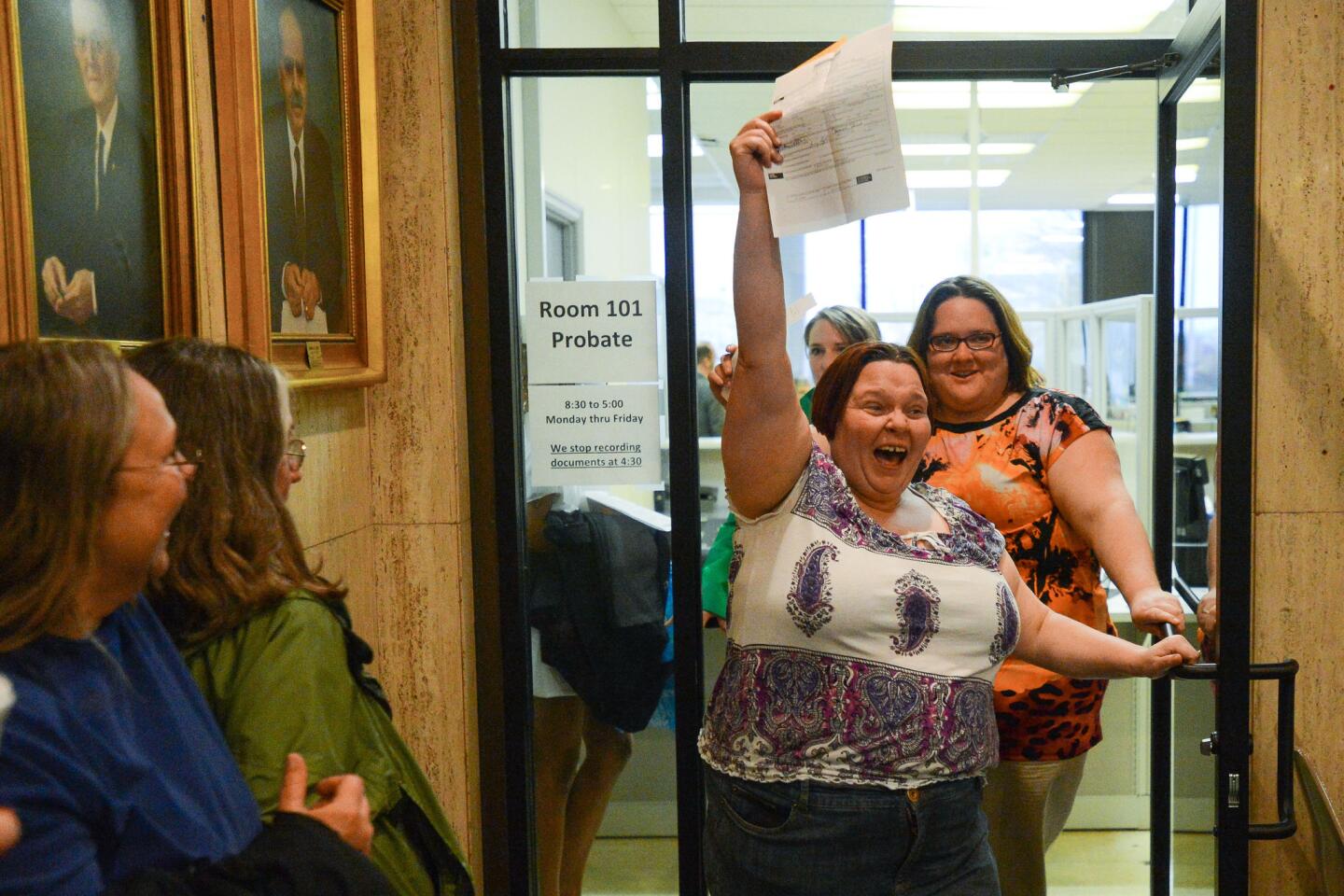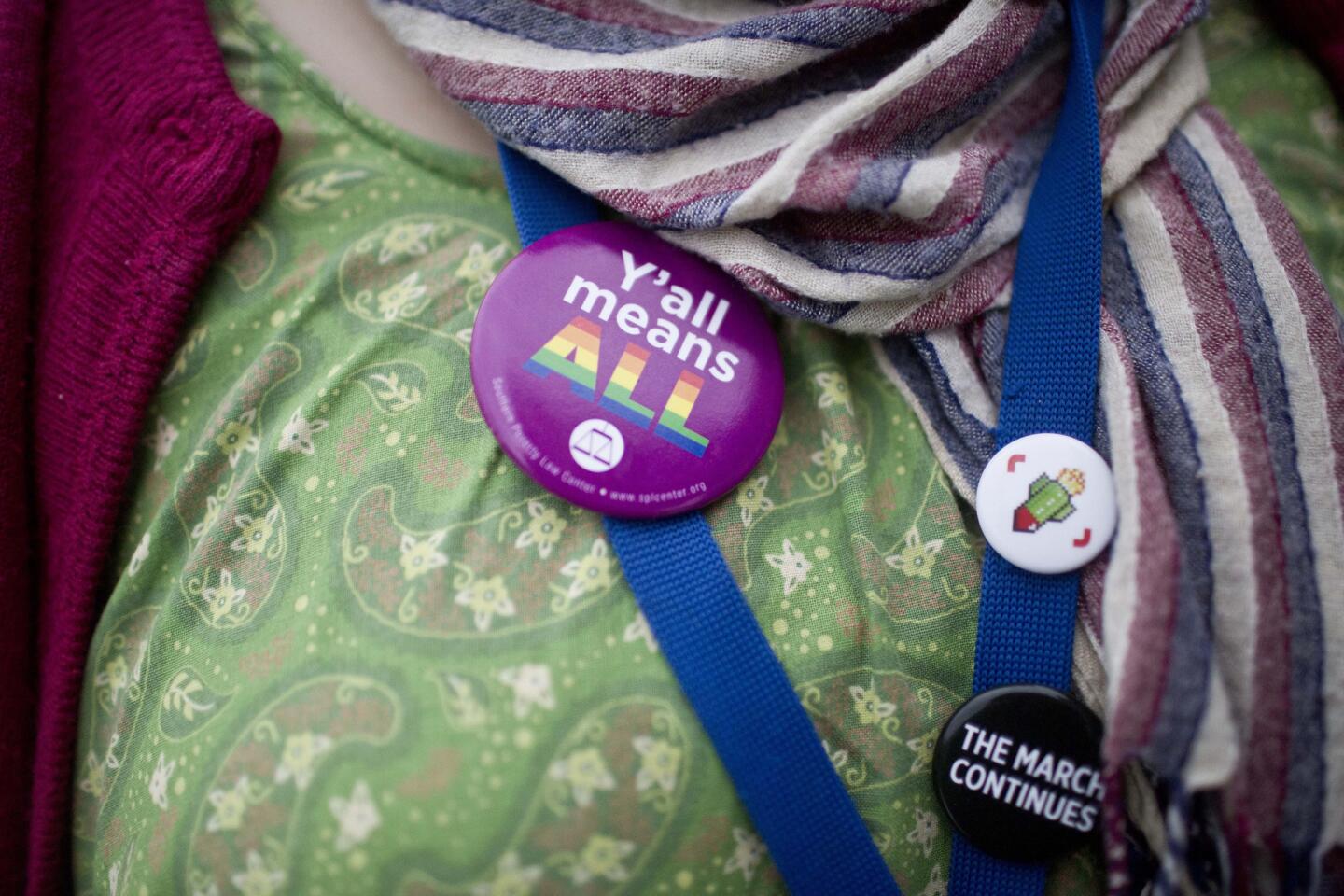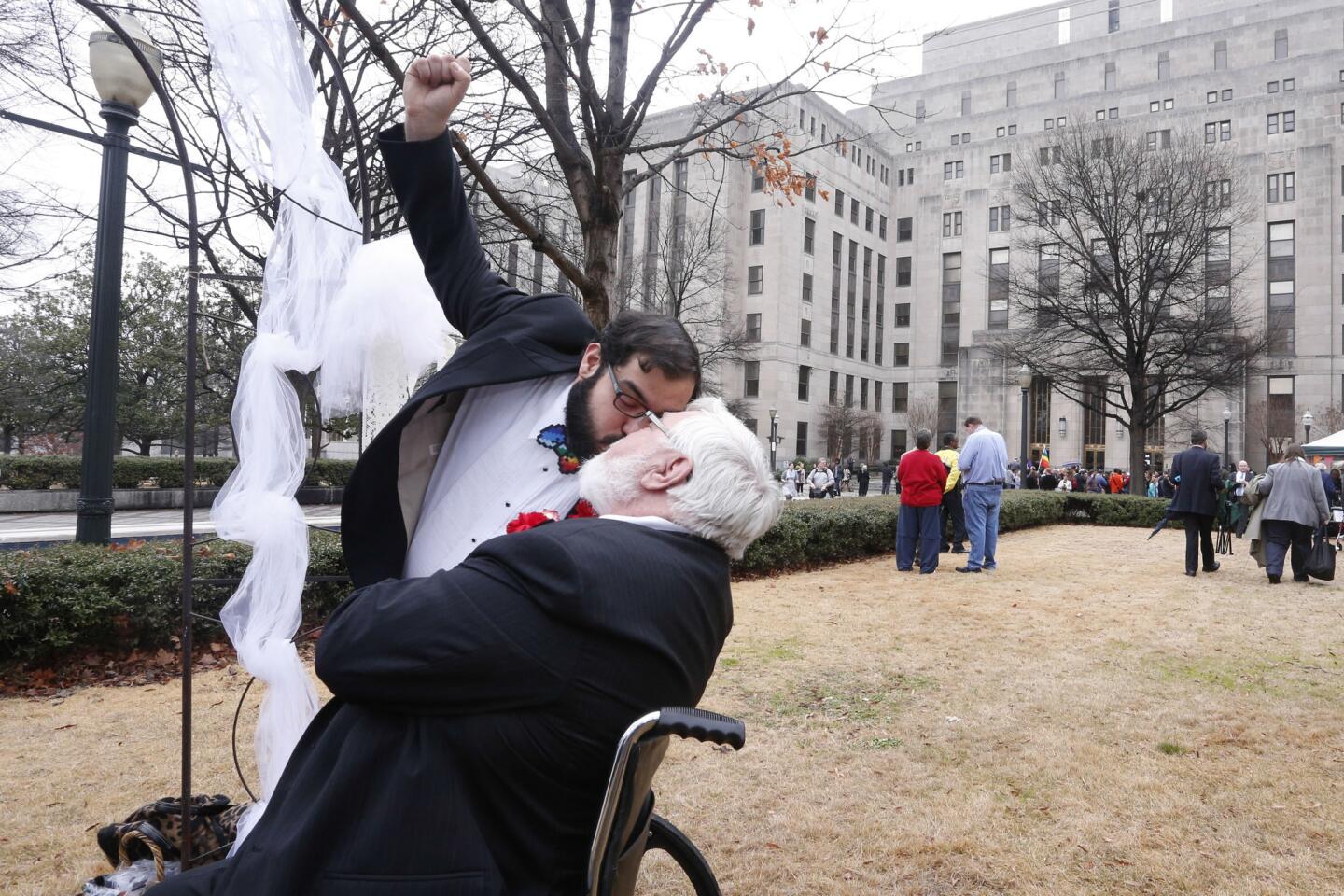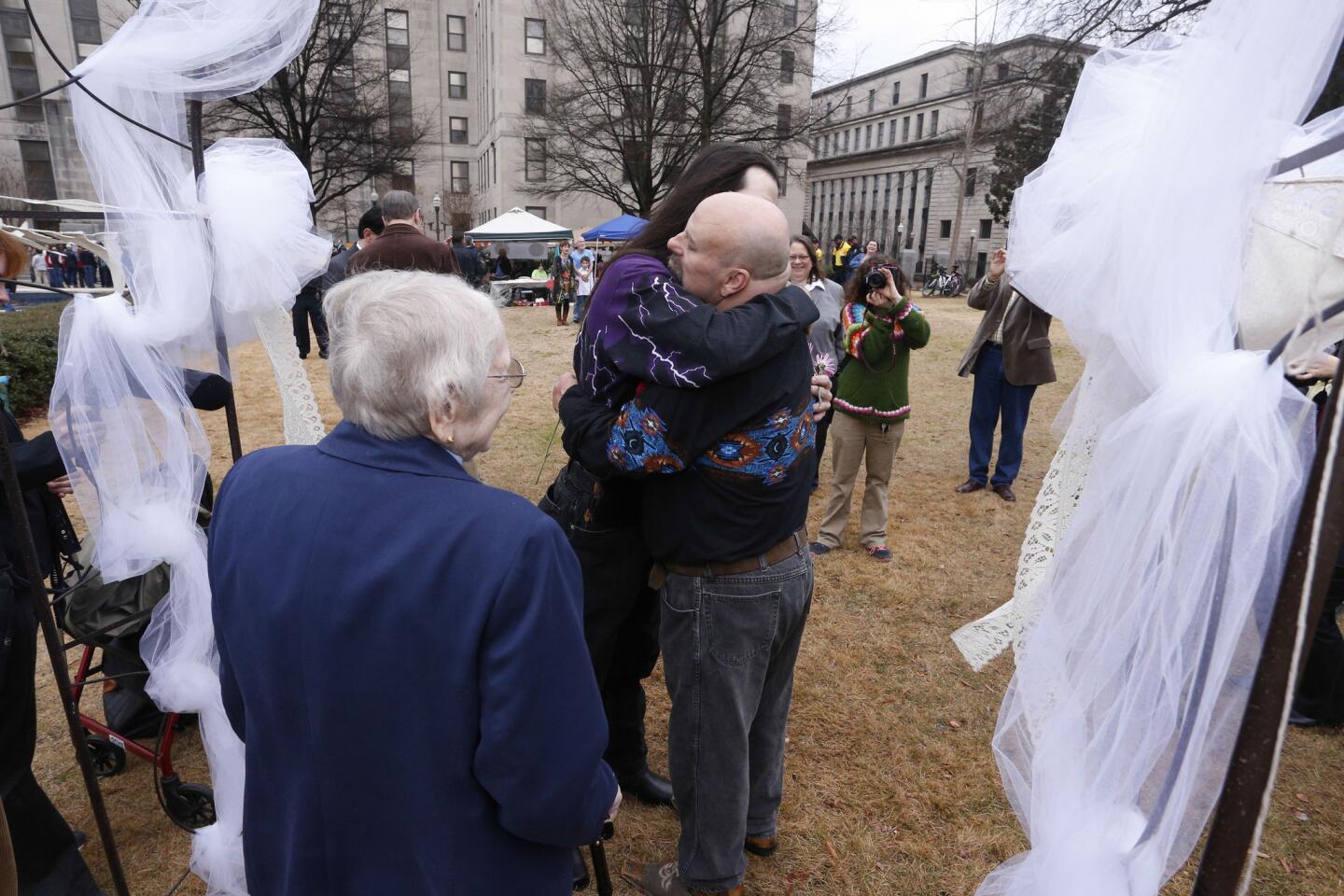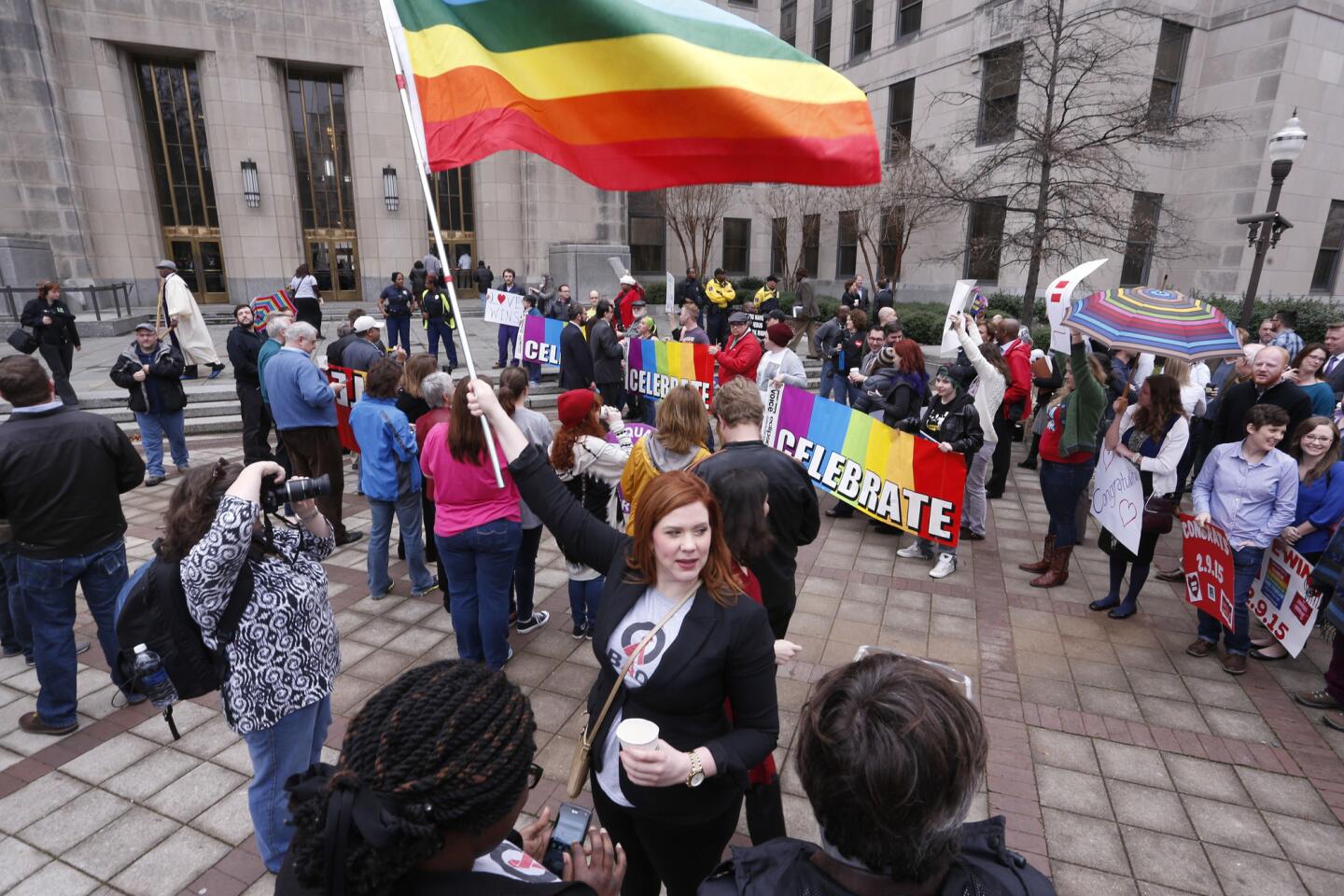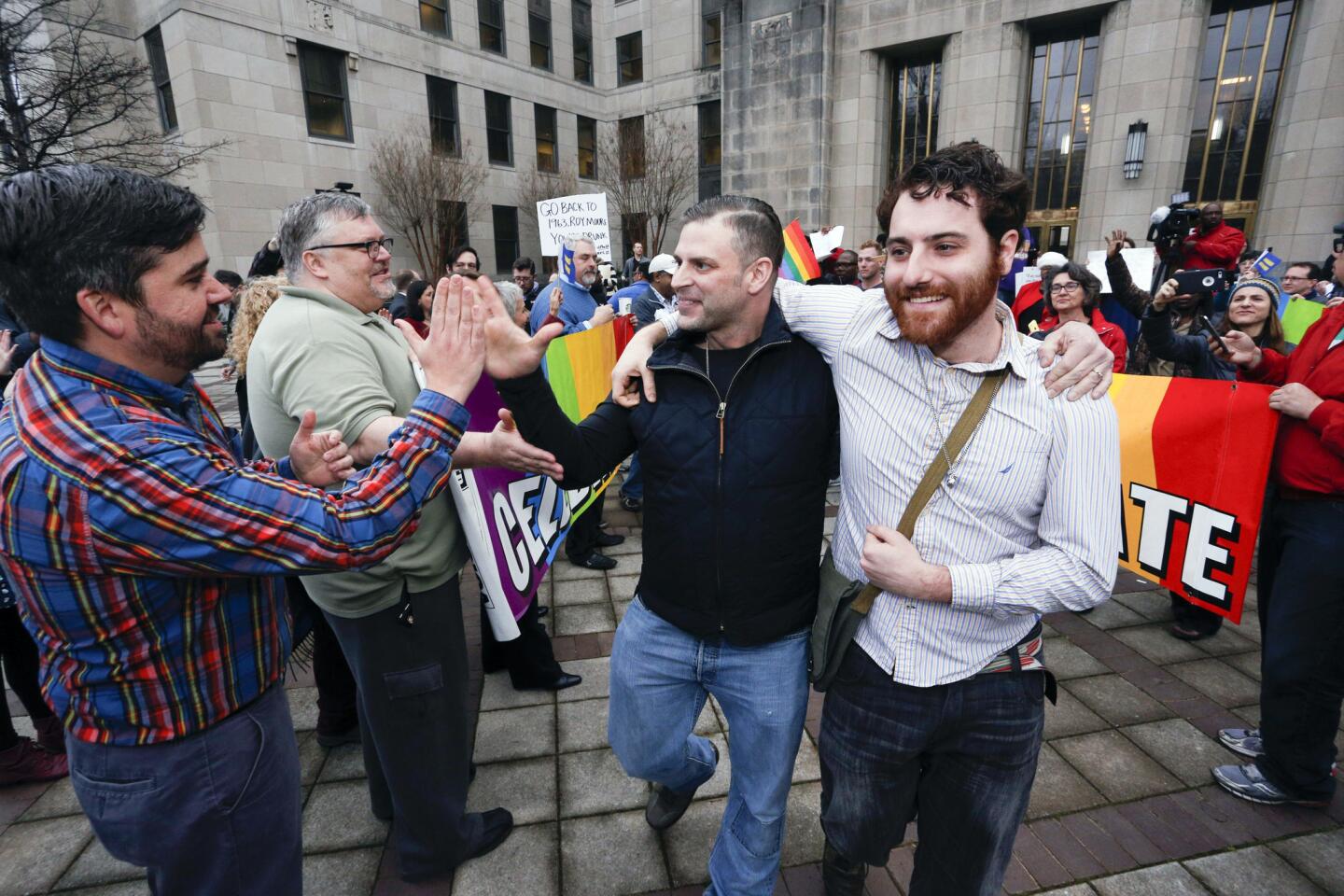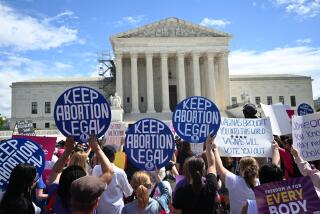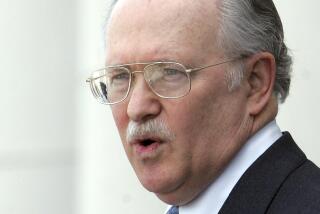Analysis:: Supreme Court, in Alabama case, may have shown its hand on gay marriage
The Supreme Court on Monday gave its strongest signal yet that the legal fight for nationwide gay marriage has been won even before the issue is argued in April.
The justices, with only two dissenting votes, turned down Alabama’s plea to delay same-sex marriages, clearing the way for gay couples to seek marriage licenses for the first time in the Deep South. A federal judge in Alabama had struck down in January the state’s law limiting marriage to a man and a woman.
Normally, a state might have expected the high court to temporarily block the judge’s decision from taking effect, since the justices had agreed to rule by June on whether gays and lesbians have a constitutional right to marry.
Instead, the justices told Alabama officials they must immediately start issuing marriage licenses to gay couples.
“This is further confirmation that the result in the marriage cases is a foregone conclusion,” said Cornell University law professor Michael Dorf.
In an unusual move, Justice Clarence Thomas wrote a dissent that all but admitted the high court’s conservatives had been defeated on the issue. He said the majority should have agreed to “preserve the status quo pending the court’s resolution of the constitutional question.”
“This acquiescence may well be seen as a signal of the court’s intended resolution of that question,” he wrote in a statement joined by Justice Antonin Scalia. “This is not the proper way to discharge our … responsibilities. And it is indecorous for this court to pretend that it is.”
Sarah Warbelow, legal director for the Human Rights Campaign, a major gay rights group in Washington, said the Supreme Court’s refusal to stay the lower court decision was telling.
“The court is only supposed to issue a stay when the party seeking the stay can show they have a likelihood of winning,” she said. “By declining the stay, seven of the nine justices are saying that the state is unlikely to win on the merits and therefore, come June, marriage equality will be the law of the land across the entire country.”
There remains uncertainty in Alabama, however. State Chief Justice Roy Moore told state probate judges, who handle marriages, that they were bound by Alabama law and should ignore the federal court’s decision. That set off a judicial showdown that led to same-sex marriages being conducted in some counties, while others refused.
Monday’s decision was not the first time the justices have signaled that a majority is ready to rule in favor of same-sex marriage.
In October, the court had before it appeals from five states where officials were prepared to defend their laws limiting marriage to a man and a woman. Federal appeals courts in Denver, Chicago and Richmond, Va., had struck down those laws as unconstitutional.
Lawyers on both sides assumed the high court would agree to hear the cases and rule on the constitutional issue. It took the votes of only four of the nine justices to grant the appeals. Moreover, the justices had earlier issued orders that blocked gay marriages from beginning in several of the states, including Utah.
But in a major surprise, the justices simply denied all the appeals without comment. That order had the effect of making gay marriages legal in about two-thirds of the nation.
The court did not accept a same-sex marriage case until January, after the U.S. 6th Circuit Court of Appeals upheld gay marriage bans in Ohio, Michigan, Kentucky and Tennessee — a ruling that differed from other circuit courts that had struck down such bans as unconstitutional. A high court decision is expected by the end of June.
When the court struck down part of the federal Defense of Marriage Act in 2013, Chief Justice John G. Roberts Jr. and Justice Samuel A. Alito Jr. joined fellow conservatives Thomas and Scalia in dissent. Their refusal to vote with Scalia and Thomas on Monday spoke loudly.
“The reality is that ever since the Supreme Court declined to take up the cases [in October] they were clearly indicating the likely outcome,” said Warbelow of the Human Rights Campaign. “It is hard to envision a scenario where you allow same-sex couples to marry only to take that away from them.”
Brian Brown, president of the conservative National Organization for Marriage, said he was disappointed by the Supreme Court’s failure to act.
“Allowing a lower court ruling that overturns a state marriage amendment adopted by over 80% of voters is reckless and undermines the integrity of the court,” Brown said. “We call on the people of Alabama to continue to enforce their state marriage laws.”
Not all experts agreed that the court’s procedural move Monday telegraphed the ultimate outcome.
“The court approaches questions about stays differently than it approaches the merits,” said Neal Katyal, who was acting U.S. solicitor general in President Obama’s first term.
Regarding Moore’s order to Alabama officials, Katyal said: “This is an extraordinary circumstance where a state previously known for resistance to federal court orders thinks it can thumb its nose at the federal court again. ... It’s a very troubling phenomenon.”
In 1963, Alabama authorities, led by Gov. George C. Wallace, refused to abide by federal court orders to integrate schools, leading President Kennedy to federalize the National Guard to enforce the court orders.
Other legal experts said one of the only remaining questions about the court’s upcoming decision on gay marriage is whether any of the conservatives will join the liberals and Justice Anthony M. Kennedy in the presumed majority.
“It seems almost inconceivable that there are not five votes now for gay marriage, and I think a lot of us are wondering if the chief justice won’t be sorely tempted to be a sixth vote,” said Harvard law professor Michael Klarman, who has written about the fight for same-sex marriage.
Some have speculated that Roberts, seeing the growing public support for gay marriage, might want to be on the “right side of history,” as they have phrased it. But the chief justice himself has given no signs that he sees it that way.
Two years ago, Roberts said that he believed states were free to maintain “the traditional definition of marriage” and that this choice did not reflect unconstitutional “bigotry” against gays and lesbians.
david.savage@latimes.com
tim.phelps@latimes.com
More to Read
Start your day right
Sign up for Essential California for news, features and recommendations from the L.A. Times and beyond in your inbox six days a week.
You may occasionally receive promotional content from the Los Angeles Times.
